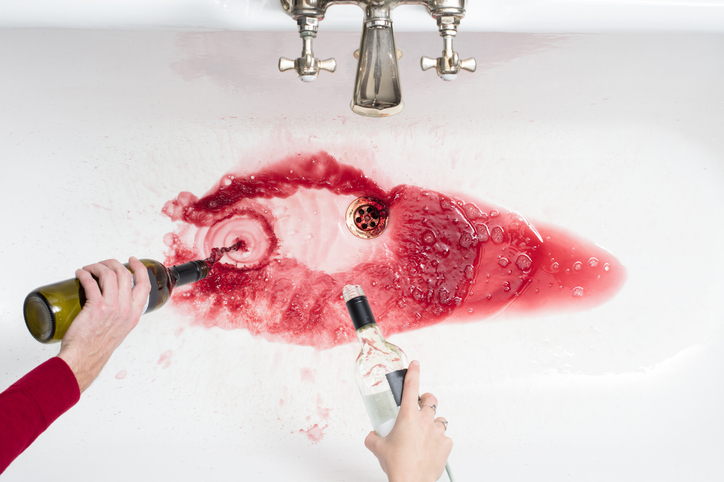
Addiction takes many forms and different people become addicted to different things, including drugs, alcohol, sex and gambling. But regardless of what you are addicted to, it will eventually become all-consuming and ultimately destroy your life. Without professional help and intervention, there is no happy ending to the story of addiction.
Like drug abuse or gambling addiction, excessive alcohol consumption can have many long-term consequences for the alcoholic as well as their family, friends, and co-workers but the good news is that it is possible to stop drinking alcohol and start living a healthy and productive life.
If you suffer from alcohol use disorder, it will not be easy to stop drinking. You will need the assistance of a medical professional or treatment centre to guide and support you through the process because alcohol withdrawal symptoms can be life-threatening, especially for heavy drinkers. Fortunately, with the right help, it is possible to stop drinking alcohol and the emotional, social and health benefits will outweigh the negative side effects of the withdrawal process.
Understanding Alcohol Dependence
If you truly want to stop drinking alcohol it is helpful to understand alcohol dependency and the effects that it has on your life. There are different levels of alcohol use disorder and the condition ranges from mild to extremely serious and potentially life-threatening. Common symptoms of alcohol use disorder include a compulsive need to drink, cravings for alcohol, anxiety about when you will have your next drink, an inability to limit your consumption of alcohol, binge drinking, and alcohol cravings. There can also be emotional warning signs like depression and anxiety. If you drink alcohol on a regular basis and find it hard not to have one or two drinks a day or binge drink when you are out with friends, then you could be at risk of developing a full-blown drinking problem and need to take steps to break the pattern so that you can stop drinking.
It is important to realise that not everyone who has a drinking problem fits the stereotypical image of a drunk. Some people are high functioning alcoholics and appear to be successful and have their lives under control. They have a good career, a happy family, a nice house and a healthy social life but they are actually concealing a serious drinking problem that could go undetected for years. A high functioning alcoholic can operate successfully in everyday life for a long time despite their alcohol addiction, but in the end, the years of alcohol abuse will take its toll on their bodies and lead to severe health complications.
Alcohol and drug addiction can affect anyone and is not restricted to one particular economic or social class and even a person with moderate alcohol consumption can have a drinking problem. The first step that you need to take if you want to determine if you are a high functioning alcoholic or suffer from alcohol use disorder is to stop drinking alcohol and have a few alcohol free days to see if you experience any symptoms of alcohol withdrawal. This is a good idea even if you are a moderate drinker because not everyone who is addicted to alcohol is a heavy drinker, binge drinker or fits the stereotype of a full blown alcoholic.
Common Signs of Alcohol Use Disorder
- The inability to control alcohol consumption
- Finding excuses to drink
- Binge drinking
- Uncontrollable cravings for alcohol
- Prioritising drinking over all other obligations
- Neglecting family and work commitments
- Spending a substantial or unaffordable amount of money on alcohol
- Drinking alone and becoming isolated from friends and family
- Hanging out with new friends and acquaintances who have similar drinking habits
- Continuing to drink alcohol even when you know it is threatening your health
Focus On The Benefits of Giving up Alcohol
When you want to stop drinking it is useful to focus on the many benefits of giving up alcohol. Alcohol consumption has plenty of negative side effects and when you stop drinking you will realise that there are many long term social, emotional and health benefits to giving up alcohol. You will almost immediately sleep better, find it easier to get up in the mornings, be more focused, have more energy and look healthier. Drinking alcohol also increases your risk of developing certain types of cancer as well as high blood pressure, sexual dysfunction, mental health issues, heart disease and liver diseases like fatty liver and cirrhosis.
How To Put A Stop To Drinking Alcohol
The first step on your journey to giving up alcohol and putting a stop to your drinking is admitting that you have a drinking problem. For many people, this is an extremely hard step to take but it is a necessary step if you truly want to stop drinking. Alcohol use disorder is a progressive disease and it is almost impossible to give up alcohol without professional medical help. When you take that first step and decide to stop, it is important to explore your treatment options and find something that will work for you and help you stay sober.
There are a number of treatment options that are available to people who want to stop drinking. You can join a support group like Alcoholics Anonymous, sign up for an outpatient treatment programme, attend counselling sessions and group therapy or enter a residential rehab facility. All these treatment options can give you the tools that you need to stop drinking alcohol and stay sober but if you are a heavy drinker, your best treatment option is a residential drug and alcohol rehab centre where you will be closely monitored by medical professionals and appropriately trained staff whilst you undertake alcohol detox.
Before you decide on a treatment option you will need an initial assessment by a psychologist or substance abuse specialist. This will help determine which treatment programme will be the most beneficial and ensure that you get the treatment you need.
If you suspect that you or a loved one has an alcohol use disorder, call Action Rehab today on 0151 268 6992 and we will help you take your first steps on the road to recovery.
Posted on Saturday, May 18th, 2019 at 3:44 pm in Alcoholism.






 Call Us
Call Us Contact Us
Contact Us